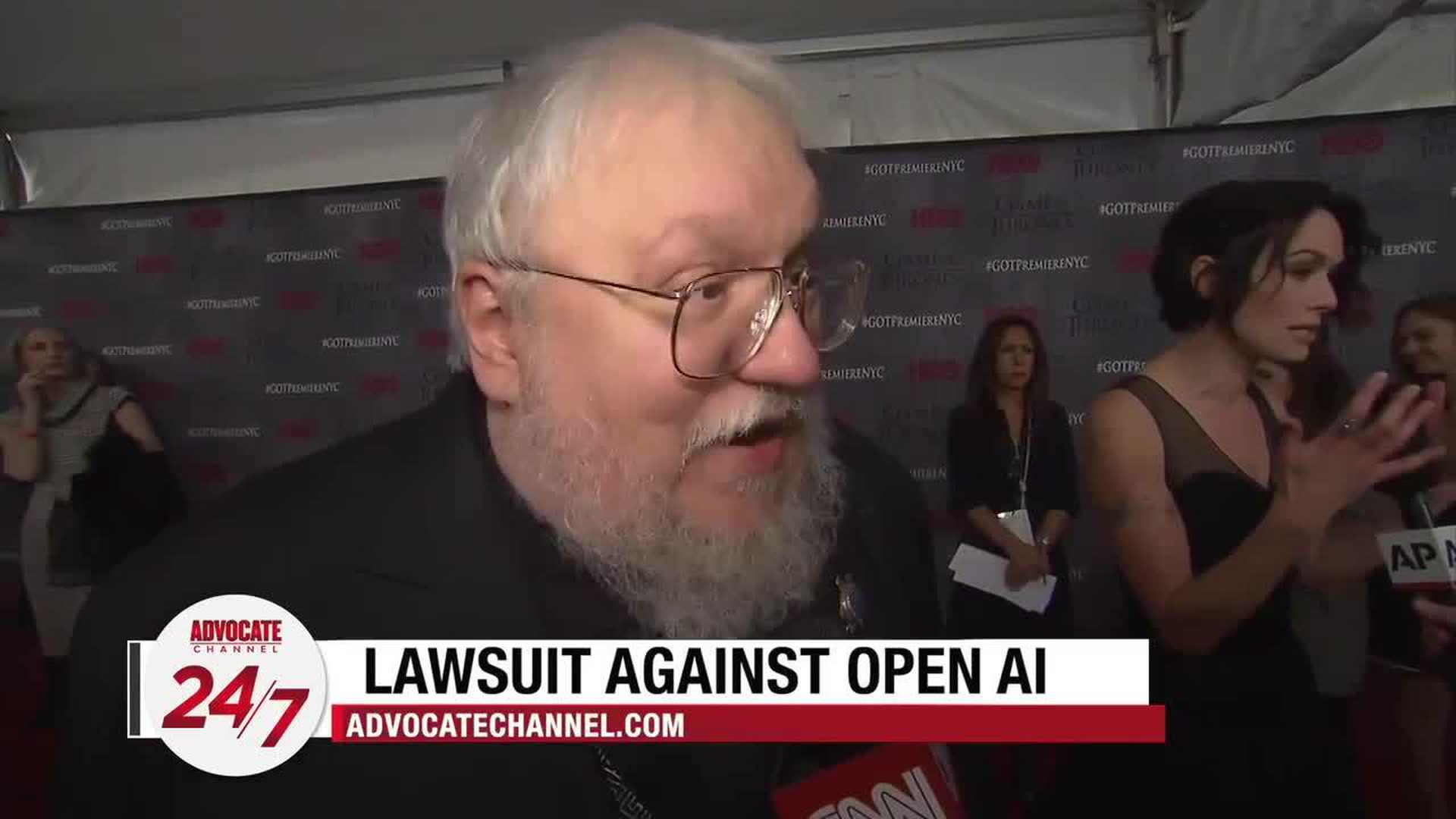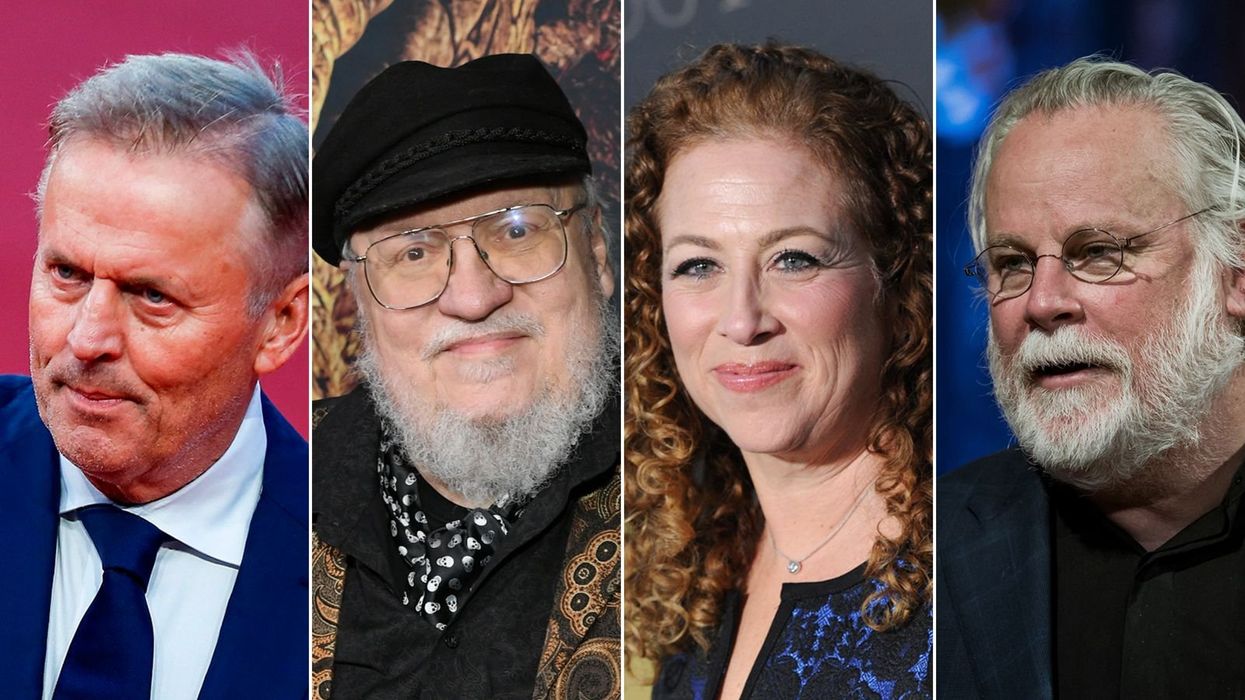
Video Source: Advocate Channel
New York (CNN) — A group of famous fiction writersjoined the Authors Guild in filing a class action suit against OpenAI on Wednesday, alleging the company’s technology is illegally using their copyrighted work.
The complaint claims that OpenAI, the company behind viral chatbot ChatGPT, is copying famous works in acts of “flagrant and harmful” copyright infringement and feeding manuscripts into algorithms to help train systems on how to create more human-like text responses.
George R.R. Martin, Jodi Picoult, John Grisham and Jonathan Franzen are among the 17 prominent authors who joined the suit led by the Authors Guild, a professional organization that protects writers’ rights. Filed in the Southern District of New York, the suit alleges that OpenAI’s models directly harm writers’ abilities to make a living wage, as the technology generates texts that writers could be paid to pen, as well as uses copyrighted material to create copycat work.
“Generative AI threatens to decimate the author profession,” the Authors Guild wrote in a press release Wednesday.
The suit alleges that books created by the authors that were illegally downloaded and fed into GPT systems could turn a profit for OpenAI by “writing” new works in the authors’ styles, while the original creators would get nothing. The press release lists AI efforts to create two new volumes in Martin’s Game of Thrones series and AI-generated books available on Amazon.
“It is imperative that we stop this theft in its tracks or we will destroy our incredible literary culture, which feeds many other creative industries in the US,” Authors Guild CEO Mary Rasenberger stated in the release. “Great books are generally written by those who spend their careers and, indeed, their lives, learning and perfecting their crafts. To preserve our literature, authors must have the ability to control if and how their works are used by generative AI.”
The class-action lawsuit joins other legal actions, organizations and individuals raising alarms over how OpenAI and other generative AI systems are impacting creative works. An author told CNN in August that she found new books being sold on Amazon under her name — only she didn’t write them; they appear to have been generated by artificial intelligence. Two other authors sued OpenAI in June over the company’s alleged misuse of their works to train ChatGPT. Comedian Sarah Silverman and two authors also sued Meta and ChatGPT-maker OpenAI in July, alleging the companies’ AI language models were trained on copyrighted materials from their books without their knowledge or consent.
But OpenAI has pushed back. Last month, the company asked a San Francisco federal court to narrow two separate lawsuits from authors – including Silverman – alleging that the bulk of the claims should be dismissed.
“Creative professionals around the world use ChatGPT as a part of their creative process. We respect the rights of writers and authors, and believe they should benefit from AI technology,” a spokesperson from OpenAI told CNN in a statement. “We’re having productive conversations with many creators around the world, including the Authors Guild, and have been working cooperatively to understand and discuss their concerns about AI. We’re optimistic we will continue to find mutually beneficial ways to work together to help people utilize new technology in a rich content ecosystem.”
US lawmakers met with members of creative industries in July, including the Authors Guild, to discuss the implications of artificial intelligence. In a Senate subcommittee hearing, Rasenberger called for the creation of legislation to protect writers from AI, including rules that would require AI companies to be transparent about how they train their models.
More than 10,000 authors — including James Patterson, Roxane Gay and Margaret Atwood — also signed an open letter calling on AI industry leaders like Microsoft and ChatGPT-maker OpenAI to obtain consent from authors when using their work to train AI models, and to compensate them fairly when they do.
But the AI issues facing creative professions doesn’t seem to be going away.
“Generative AI is a vast new field for Silicon Valley’s longstanding exploitation of content providers. Authors should have the right to decide when their works are used to ‘train’ AI,” author Jonathan Franzen said in the release on Wednesday. “If they choose to opt in, they should be appropriately compensated.”
The-CNN-Wire
™ & © 2023 Cable News Network, Inc., a Warner Bros. Discovery Company. All rights reserved.
- 'Godfather of AI' Says AI Could Pose 'More Urgent' Threat to Humanity Than Climate Change ›
- Microsoft Under Fire For AI Obituary That Calls Deceased NBA Player 'Useless' ›
- AI Is Exploiting Humans — and Their Resources ›
- AI Threatens 80 Percent of Women's Jobs ›
- Striking Actors Horrified by Studios' Dystopian AI Proposals ›
- Zelda Williams Slams AI Using Late Father Robin Williams ›


















































